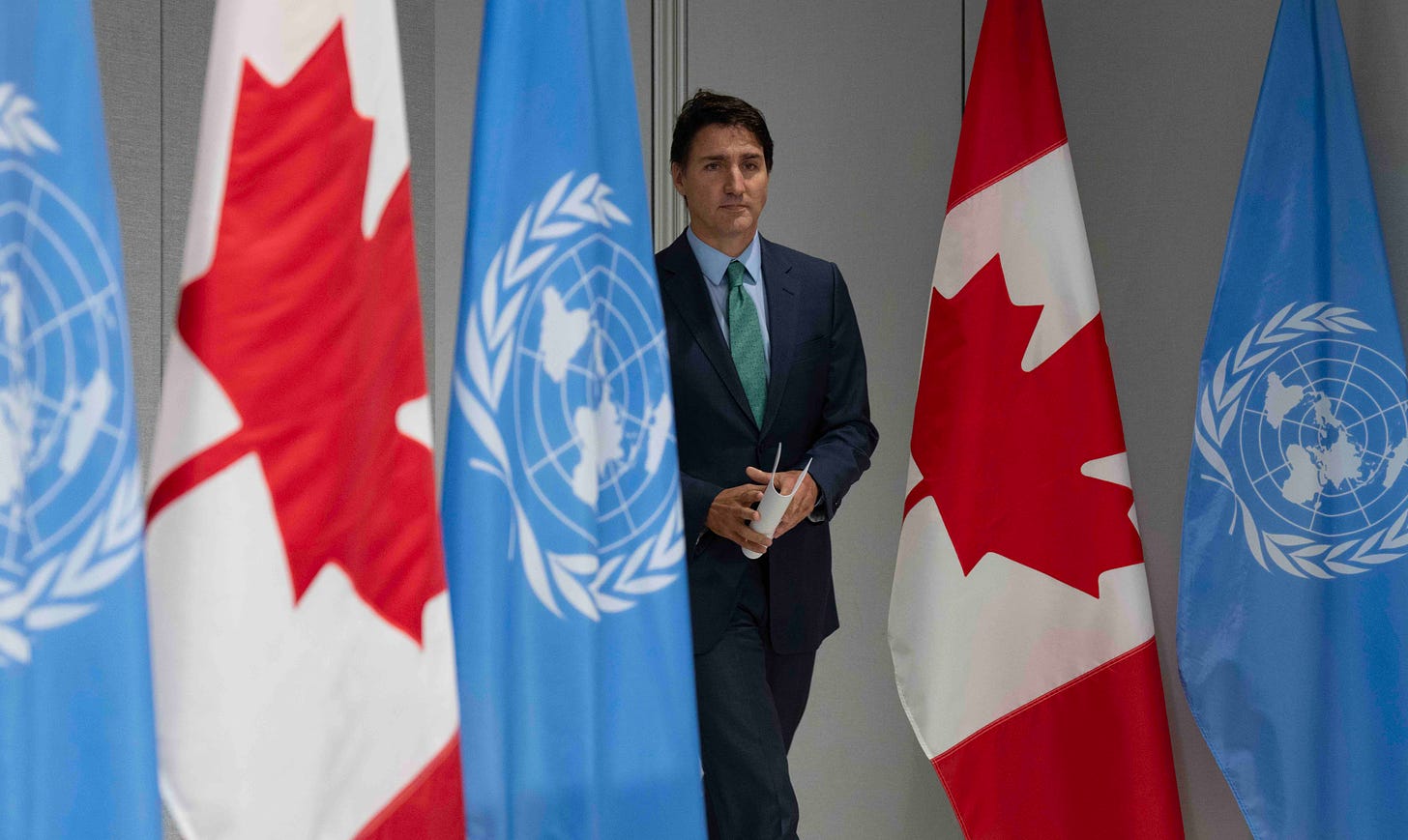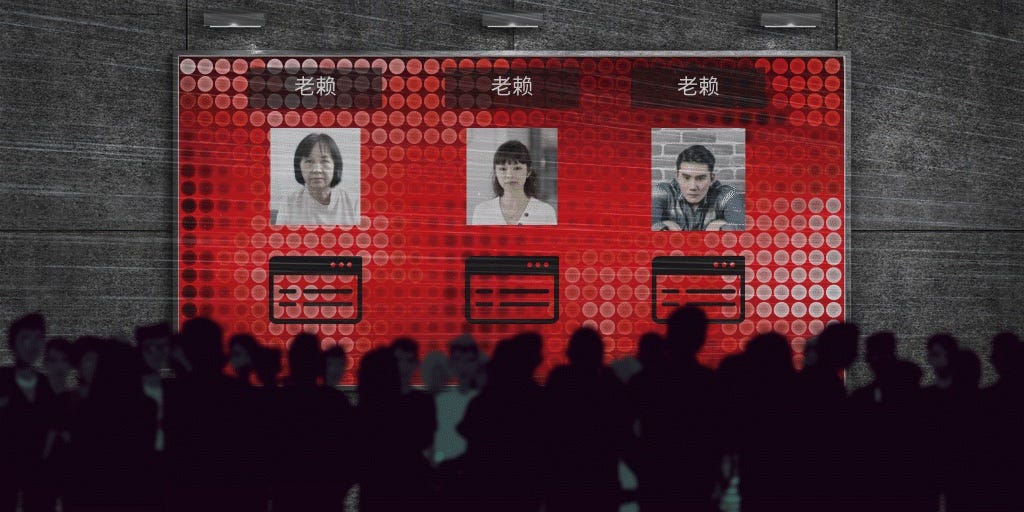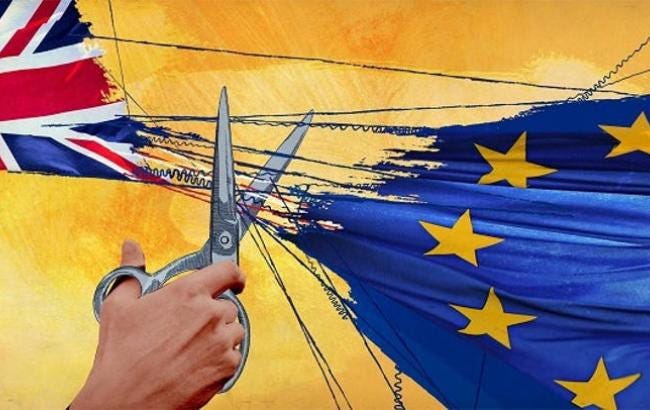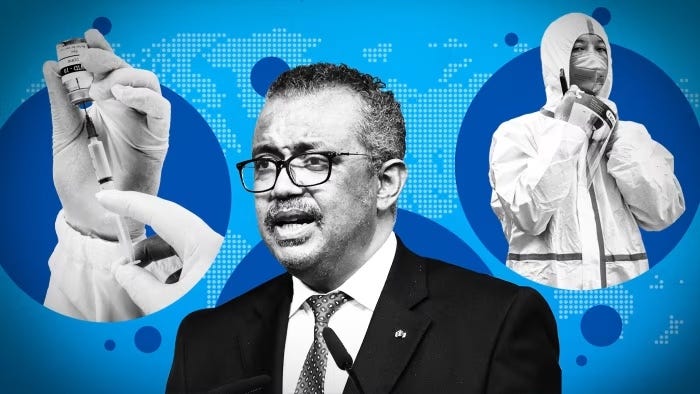The Future Pact Agreement is the latest initiative introduced by the United Nations, presented as part of its mission to "save the world." The Pact outlines ambitious goals—addressing climate change, pushing for social and economic reforms, implementing sustainable development, globally centralized digital governance, mandated medical protocols, and, of course, censorship. On the surface, it’s all wrapped in the language of progress, but the reality is that this agreement seeks to expand the authority of global entities like the United Nations and the World Health Organization, demanding that we fall in line with their vision of governance.
Let’s take a closer look at what’s really going on, what this means for everyday citizens, and why we need to pay attention before it’s too late.
Data Surveillance and Digital Identity: Control Over Your Every Move
At the heart of the Future Pact is the global data-sharing platform. This platform is designed to monitor compliance with global objectives—whether that’s reducing carbon emissions, following economic reforms, or adhering to health guidelines. On the surface, it may seem like a good idea, a way to ensure accountability. But dig deeper, and it becomes clear this is about creating mass surveillance systems. Governments will be able to track every aspect of our lives under the guise of monitoring compliance.
Worse still, the Pact introduces a global digital identity system. This system mandates that every citizen has a secure digital ID to engage in the global economy, access public services, and even participate in global governance. It sounds efficient, but what it really means is that all your personal data—financial records, health information, social interactions—will be tied to a single, globally centralized system.
What happens when this digital ID is used to restrict access based on compliance? If your beliefs or behaviors don’t align with the global narrative, you could find yourself locked out of essential services. This is the very foundation of China’s Social Credit System, where citizens are tracked, scored, and controlled based on their behavior. Step out of line, and your access to transportation, housing, and even the internet can be cut off.
The Future Pact’s surveillance, and digital ID system is a step toward global control over individuals, not a solution for efficiency.
Censorship: Silencing Dissent in the Name of Progress
Next up, we have censorship. The Future Pact pushes for global cooperation to combat "misinformation," "disinformation," and "harmful content." While it’s important to counter false information, the real issue here is who decides what counts as misinformation. The Pact hands over the power to define truth to global bodies that already have a track record of stifling dissent and suppressing alternative views.
We’ve seen this play out time and again. During the COVID-19 pandemic, governments used "misinformation" as an excuse to censor anyone questioning the official narrative—whether that was on vaccines, lockdowns, or treatment options. Independent journalists, scientists, and even regular citizens found themselves banned from platforms or labeled as conspiracy theorists.
With the Future Pact, we can expect even more censorship. Criticism of global policies—whether on climate change, economic reforms, or health regulations—could be silenced under the banner of preventing harm. This is already happening in regimes like Russia, China, and Turkey, where laws against "fake news" are used to imprison journalists and suppress opposition.
The Pact gives global authorities the power to control the narrative, stifling free speech and criminalizing dissent. If you thought censorship was bad now, imagine what it will look like when it’s coordinated on a global scale.
National Sovereignty: The End of Local Control
One of the most glaring issues with the Future Pact is how it erodes national sovereignty. The agreement requires member states to align their national laws with global objectives, meaning that decisions affecting your country will be made by international bodies rather than your own elected officials.
This isn’t just theoretical—it’s already happening. Look at the European Union. Nations within the EU have to follow rules and regulations set by the EU Commission, even when those policies don’t suit their unique circumstances. This was a huge reason behind Brexit. The UK decided it no longer wanted to be bound by rules that didn’t reflect its own interests.
Countries like Hungary and Poland have also pushed back against EU directives that they feel infringe on their national identity and autonomy. With the Future Pact, this kind of overreach would become the norm. Global bodies would dictate everything from economic policy to environmental regulations, leaving individual nations with little control over their own futures.
Financial Control and Economic Manipulation: A New Era of Economic Dependency
The Future Pact hands over global financial control to international organizations, allowing them to regulate economic policies aimed at achieving sustainability and wealth redistribution. On paper, this sounds like a noble goal—who wouldn’t want a fairer, more sustainable economy? But the reality is that this would allow global entities to manipulate national economies to serve global objectives, often at the expense of local populations.
Take carbon taxes, for example. Under the Pact, countries could be forced to impose heavy taxes on carbon emissions, disproportionately impacting industries and workers that rely on affordable energy. These kinds of policies often hurt the most vulnerable, driving up costs and creating economic instability, while doing little to actually solve the underlying problems.
We’ve seen this kind of manipulation before with organizations like the International Monetary Fund (IMF) and the World Bank. Developing countries often find themselves trapped in cycles of debt and dependency, forced to adopt austerity measures that harm their citizens while enriching foreign investors. The Future Pact’s financial control mechanisms would allow these same organizations to exert even more power over national economies, ensuring that global objectives are met—whether they benefit the local population or not.
Resource Redistribution: Global Control Over Essential Goods
The Future Pact calls for the creation of Global Resource Management Councils to oversee the distribution of essential resources like energy, food, and water. This is framed as a way to ensure fair access to resources, but in practice, it would allow global authorities to control the flow of vital goods—taking from countries that have managed their resources well and redistributing them to those that haven’t.
We’ve seen how forced redistribution can lead to disaster. Take the Soviet Union under Stalin. Driven by the policy of forced collectivization and state requisitioning of grain, millions of people died from famine. Peasants who were caught taking grain from the fields or trying to leave these poverty-stricken areas were either arrested or killed. The same risks apply here. Centralized control over resources is a recipe for inefficiency, corruption, and human suffering.
Mandatory Climate Action and Land Reallocation: The War on Property Rights
The Future Pact demands strict land-use policies to meet global climate goals. This means international bodies would have the power to decide how land within sovereign nations is used—whether it’s for conservation, renewable energy projects, or sustainable agriculture. The catch? This opens the door to massive infringements on property rights.
Landowners, farmers, and entire communities could be forced to give up their land, even if it means destroying livelihoods. We’ve already seen the effects of aggressive climate policies in places like Germany, where the rapid push to phase out nuclear and coal power in favor of renewable energy has led to skyrocketing electricity costs and increased reliance on foreign energy sources.
This kind of mandatory climate action, especially when forced on countries without proper alternatives in place, will create energy shortages and drive up costs for everyday people. And if that wasn’t enough, the Pact’s goal of reaching net-zero emissions by 2050 means entire industries could be wiped out or radically transformed, with little regard for the workers or communities left behind.
Global Health Systems: The Next Pandemic Power Grab
During the COVID-19 pandemic, we saw how global organizations like the World Health Organization (WHO) influenced national health policies, often with disastrous results. The Future Pact takes this a step further, giving global authorities even more power to dictate national health responses.
In future pandemics, nations would be required to follow global health regulations, even if they don’t suit their local populations or circumstances. This kind of one-size-fits-all approach ignores the unique challenges that different countries face and could lead to worse outcomes, not better ones. And given how controversial the handling of the COVID-19 pandemic was—with mandatory lockdowns, vaccine mandates, and restrictions on civil liberties—it’s clear that giving more power to global health bodies is a dangerous move.
Enforcement of Cultural and Social Norms: Global Censorship in the Name of Inclusivity
The provision, demanding member states to adhere to global standards on equality, diversity, and inclusivity might sounds good on paper, but this will be used to enforce a global monoculture that overrides local traditions and values. The vague terms like "hate speech" and "intolerance" open the door for censorship as global authorities define what constitutes offensive speech.
Take Canada's Bill C-16, which added "gender identity" to protected categories under human rights law. Critics argue this compels speech, limiting freedom of expression. This same overreach is seen in Canadian medical schools where admissions prioritize DEI students, and merit-based standards like the MCAT are being replaced by "lived experience."
In the US, Title IX has been expanded to force universities to comply with new gender norms. Now, federal funding is tied to letting men compete in women’s sports and use their locker rooms. These policies signal what’s to come globally—dissent will be stifled, and traditional values erased under the guise of "tolerance."
Forced Migration Policies: Global Quotas at the Expense of National Stability
Finally, under the Future Pact Agreement, countries must support global migration initiatives, including taking in large numbers of migrants. This global quota system would be imposed by centralized authorities, regardless of the impact on local economies, security, or societal cohesion.
Canada is already buckling under the pressure with 1.5 million immigrants arriving this year—overwhelming our infrastructure and contributing to rising crime rates. Europe’s experience has been even worse, with the EU’s forced migration quotas sparking social unrest and the rise of right-wing movements. In places like the UK, opposing these policies can even land you in jail.
Under the Future Pact, national sovereignty will be undermined, and resistance to these policies could face severe consequences. This isn’t about humanitarianism—it’s about imposing migration policies that destabilize nations while silencing anyone who dares to question them.
Conclusion: The Global Power Grab We Can’t Ignore
The Future Pact Agreement is being marketed as the solution to our global challenges, but it’s nothing more than a global power grab. It seeks to centralize control over our lives—dictating how we live, what we can say, how we manage our resources, and even how our economies function.
If we allow this Pact to move forward unchecked, we’ll be handing over control of our futures to international bodies that don’t have our best interests at heart. This isn’t about saving the planet or creating a fairer world—it’s about consolidating power, eroding national sovereignty, and stifling dissent.
But there’s still time to push back. No country is legally bound to implement these agreements unless they are ratified through legislation by their own governments. It’s up to us to ensure that we elect leaders who stand up for national sovereignty, personal freedom, and the right to chart our own course.












It’s all just so sickening. The worst part is trudeau is part of this globalism & has infiltrated every level of gvnmt with compliant pawns
As much as I believe we are moving in this direction - DO NOT LIVE IN FEAR! I absolutely refuse to let some global entity dictate my future. We are stronger than they realize! You have the ability to resist, get prepared, in fact it should be your #1 goal right now.